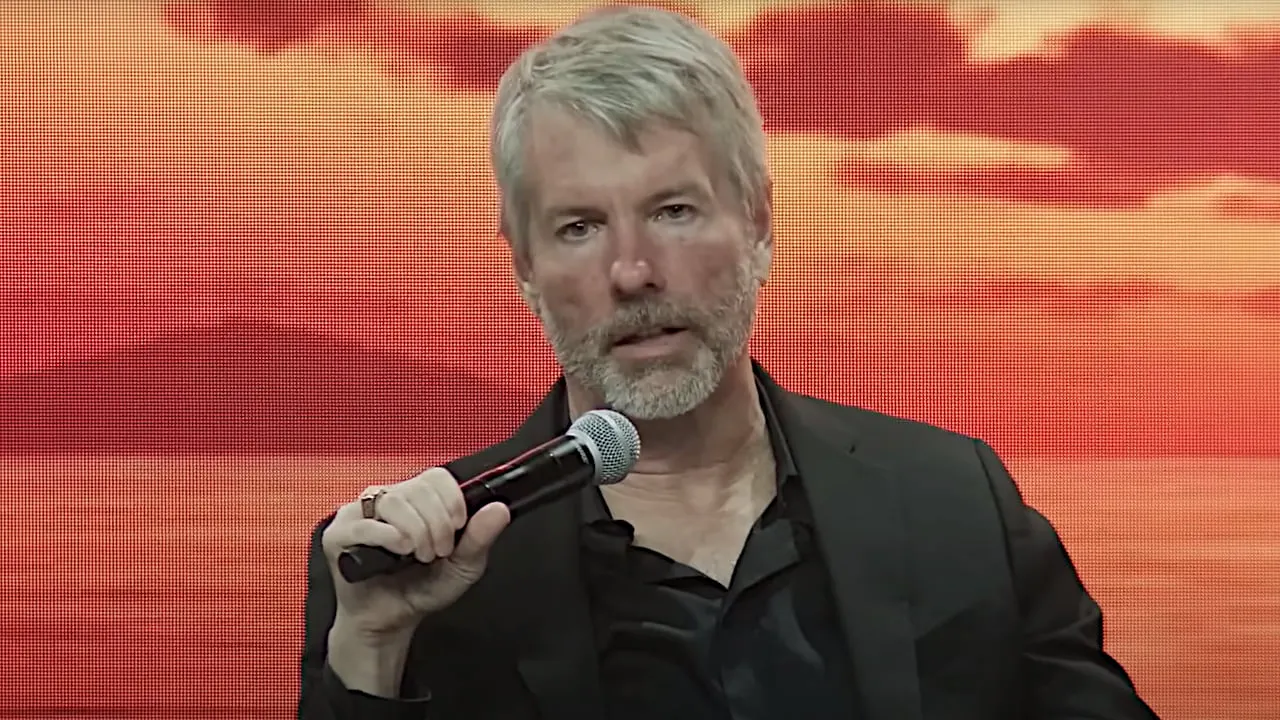MicroStrategy is the largest corporate owner of Bitcoin—but its co-founder and executive chairman, Michael Saylor, says another party should be the undisputed king of whales.
“The U.S. government should own the majority of the Bitcoin in the world,” Saylor said on the Bitcoin 2024 commentary desk on Thursday.
An unabashed Bitcoin bull, he declared the next day that the BTC market cap will hit $280 trillion—or grow more than 200 times—by 2024. Saylor has previously predicted that Bitcoin’s market cap could surpass $100 trillion, implying that the currency could reach $5 million per coin.
Owning the majority of all the Bitcoin that will ever be mined implies that the U.S. government should hold over 10.5 million BTC, worth $711 billion at current prices. According to on-chain data, the government currently owns 208,898 BTC seized from criminals, worth $14 billion in total.
His wish mirrors that of independent U.S. presidential candidate Robert F. Kennedy Jr., who said this week that he’d like the U.S. government to have equal exposure to Bitcoin as it does to gold. The federal government boasts the world’s largest gold reserves at 8,134 metric tons, worth $615 billion.
Kennedy’s idea for such a large allocation was to use it as part of a basket of hard assets to back the U.S. dollar. Saylor shares a similar ideal.
“You back the dollar by doing something economically rational,” Saylor explained. He cited the construction of the port of New York City—which helped the U.S. engage in international commerce—as one such decision.
“The future of the country is in cyberspace, and Bitcoin is, in essence, ‘cyber Manhattan,’” he continued. “The way you back the dollar is you buy Manhattan for a piece of paper and trinkets, and you buy it before it's worth hundreds of trillions of dollars.”
Like Kennedy, Donald Trump has recently positioned himself as a crypto ally, and has said he wants to protect Bitcoin miners in the United States. Both candidates are appearing and speaking at Bitcoin 2024 this week in Nashville.
The crypto views of current vice president and likely Democratic presidential candidate Kamala Harris are unknown, though the Biden administration has cracked down on crypto firms in the country. However, the Harris camp is reportedly reaching out to prominent crypto advocates with questions—such as billionaire entrepreneur Mark Cuban, as he told Decrypt.
For any candidate to potentially back dollars with Bitcoin, they’d first need to establish a formal federal U.S. Bitcoin reserve—a move that could symbolize newfound legitimacy of digital assets in the eyes of the state. It would also likely mean pivoting on plans to sell any of the $14 billion of BTC that the government has already amassed.
Bryan Courchesne, founder of crypto wealth manager DAIM.io, believes such a step would be “possible”—albeit difficult.
JUST IN: 🇺🇸 CNBC discusses the possibility of the US Government holding #Bitcoin as a reserve asset.
“It is possible. The Justice Department holds about 200,000 Bitcoin” pic.twitter.com/4z56yFMClu
— Bitcoin Archive (@BTC_Archive) July 22, 2024
“The Justice Department holds about 200,000 units of Bitcoin,” he said during an interview with CNBC this month. “They could easily just move that over to the Department of Treasury and start right there and have $13 billion worth of Bitcoin on the balance sheet.”
“If they move from being a random seller to being a long-term holder, that could be really good for the space,” he continued.
If the U.S. took things a step further and followed Kennedy’s proposed plans, it would need to actively acquire $154 billion in Bitcoin for four straight years.
CryptoQuant told Decrypt that it's possible to calculate how such an accumulation strategy might affect Bitcoin’s price. Per the company’s “Bitcoin multiplier” estimate, every $1 invested into Bitcoin increases the asset’s market cap by $3 to $4 during a bull market period.
“It could imply a [yearly] increase in the market capitalization of Bitcoin of between $460-$615 billion,” said head of research Julio Moreno. “This would imply a [yearly] Bitcoin price increase of $23,000 to $31,000, for a price between $90,000 and $98,000 (assuming today’s prices).”
Edited by Ryan Ozawa.

